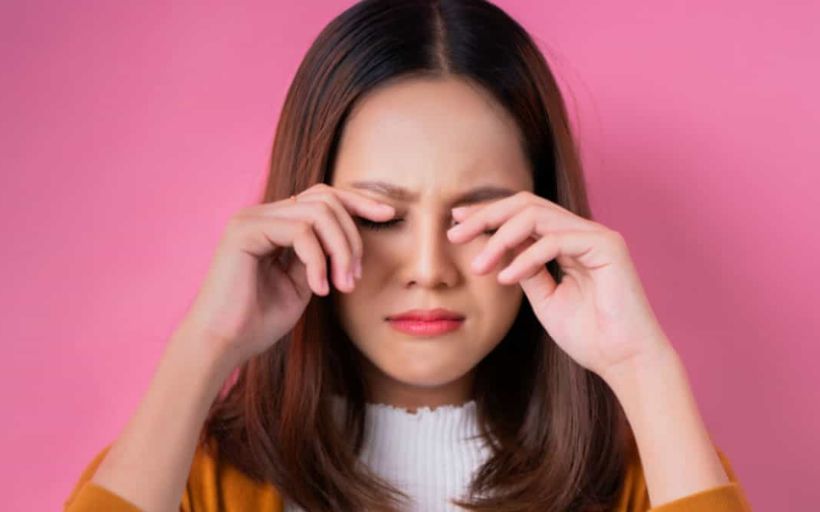Dry eyes are a common issue that many people suffer from. This condition often causes constant discomfort, a dry sensation or blurred vision, and can often interfere with your daily activities. If proper care is not taken at the correct time, dry eyes can lead to serious eye problems in the future.
For this purpose, it is essential to have knowledge of the causes, symptoms, and treatment of dry eyes that would be helpful for you or someone you know who suffers from the condition.
In this blog, we will discuss the causes of dry eyes and how to treat the issue.
Understanding Dry Eyes
Tears maintain the health of the outer surface of the eyes and provide clear vision by reducing friction. This complex mixture of water, fatty oils, and mucus helps maintain a smooth surface of the eyes and protects against infections. When the eyes cannot produce enough tears to maintain these functions, the condition is called dry eyes.
There are two main dry eye types: aqueous tear-deficient dry eyes and evaporative dry eyes. In aqueous tear-deficient dry eyes, the eyes cannot produce the optimal levels of tears, and in the latter, the tears evaporate too quickly.
Understanding the specific nature of your problem is necessary to ensure the best treatment for dry eyes.
Common Symptoms of Dry Eyes
Physical Discomfort: Physical discomfort is a main symptom of dry eyes like such as burning, itching, and a gritty or sandy feeling in the eyes. You may need to rub your eyes constantly, which can worsen with wind or air conditioning conditions.
Visual Symptoms: Blurred vision after long periods of focusing, reading, or watching a screen is a common symptom of dry eyes. This can also include sensitivity to light and the inability to step out without shades.
Excessive Tearing: Sometimes, you may also notice excessive tearing due to irritation in the eyes. This can be another symptom of dry eyes that needs medical attention. The liquid in these excess tears often lacks the needed oil and mucus to lubricate the eye, continuing the cycle of dryness and irritation.
Causes of Dry Eyes
Aging and Hormonal Changes: Age affects the natural production of tears and can eventually lead to dry eyes. Hormonal changes can also cause an imbalance in tear production and cause visual irritation.
Environmental Factors: If exposed to environmental conditions such as wind, smoke, or dry climate, tear evaporation can speed up. Long exposure to air conditioning or heating also contributes to dry eyes.
Screen Time and Digital Eye Strain: Screen time also enhances eye health. When you are too involved in screen time, the frequency of blinking is reduced, which is essential in moistening your eyes. This can lead to faster tear evaporation and, hence, dry eyes.
Medical Conditions and Medications: Many medical conditions can affect tear production, causing dryness in the eyes. Medicines such as antihistamines, decongestants, or antidepressants can also reduce tear production.
Diagnosing Dry Eyes
If you suspect that you are suffering from dry eyes, it is recommended that you visit an ophthalmologist for a proper medical diagnosis. During the visit, there would be a series of tests that the doctor would perform to evaluate the quantity or quality of your tears, which would determine if you are suffering from dry eyes and the type of your condition.
It can also include the tear-breakup-time, which is the time taken for your tear to dry up after blinking.
In short, dry eye diagnosis is best done at a medical level so that there is no error in diagnosis or treatment.
Treatment Options for Dry Eyes
Lifestyle Changes and Home Remedies: Making minor adjustments to your lifestyle, such as using a humidifier at your home or workplace, staying hydrated, and taking frequent breaks from screens can significantly improve the symptoms of dry eyes. You can also try applying warm compresses to your eyes and cleaning your eyelids with medical-grade wipes can help in reducing inflammation and improve tear quality.
Over-the-Counter Solutions: Artificial tears and lubricating eye drops are the go-to solutions for dry eyes. These products can help induce natural tears and temporarily relieve symptoms that might be causing discomfort.
Prescription Medications: For severe cases of dry eyes, it is necessary to visit a doctor. The doctor will then prescribe medications based on your condition, reducing inflammation and increasing tear production to overcome dry eyes. It is better to consult a doctor for severe cases rather than opting for over-the-counter medications.
Advanced Treatments: It is very often possible to have a tear drainage issue, a critical case of dry eyes. In such cases, punctual plugs, which are inserted into the tear ducts and block drainage, may be recommended to the patient. This process is meant to keep the eyes lubricated and prevent dryness. Other advanced treatments, such as intense pulsed light and pillow, may also be recommended to treat dry eyes.
Preventing Dry Eyes
Stay Hydrated: Staying hydrated is the key to preventing many illnesses; the same goes for preventing dry eyes. Maintain your water intake and drink at least 8 glasses per day to ensure optimal eye health.
Protect your eyes: Factors such as wind, dust, and light can cause irritation in the eyes and lead to dryness. Thus, protect your eyes against environmental factors that may be causing the problem. Use a humidifier if you suspect dry eyes are caused by dry surroundings or use sunglasses if they are caused by pollution or light.
Adjust Screen Time: Adjusting screen time can greatly impact preventing dry eyes. Avoid using a screen for long hours and keep it sufficiently far from your eyes. Also, remember to blink often so that your eyes are well-lubricated.
Avoid Irritants: Elements such as smoke, dust, and many airborne particles can irritate and lead to dry eyes. Avoiding exposure to these particles can help prevent dry eyes and improve eye health.
Include Omega-3 fatty acids in your diet. Omega-3 fatty acids are known to reduce inflammation and increase the quality of tears. Flax seeds, salmon, and walnuts are good sources of omega-3.
Conclusion
Dry eyes are a minor yet highly problematic issue that affects many individuals for a variety of reasons. This condition is often overlooked as fatigue, which leads to worsening and requiring advanced treatments. Thus, it is necessary to avoid the risk factors that may lead to dry eyes and get medical attention even if you have the slightest doubts about suffering from dry eyes to avoid worsening the issue.
For mild to extreme cases of dry eyes, visit the best eye specialist in Chinchwad at Omkar Eye Hospital.


